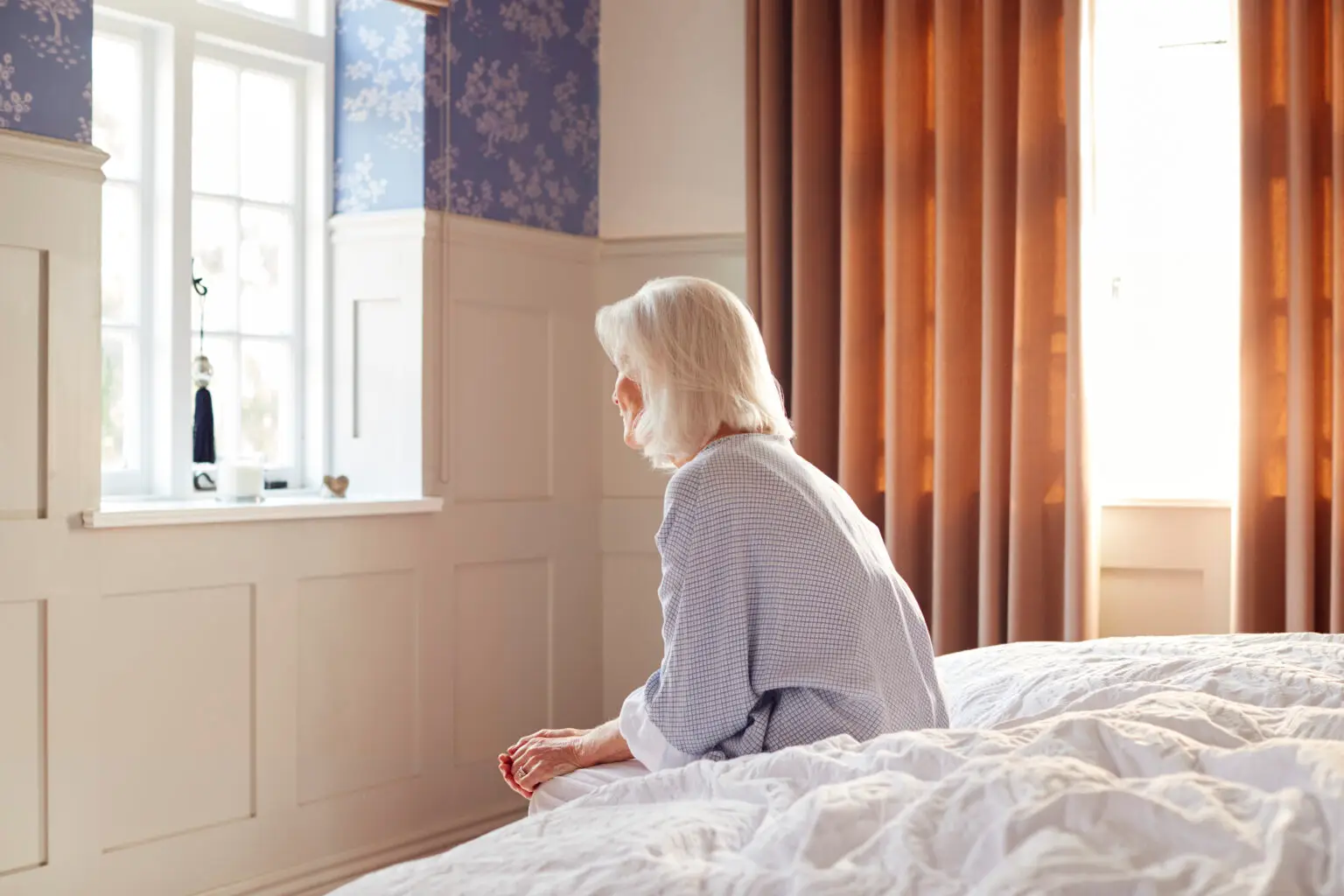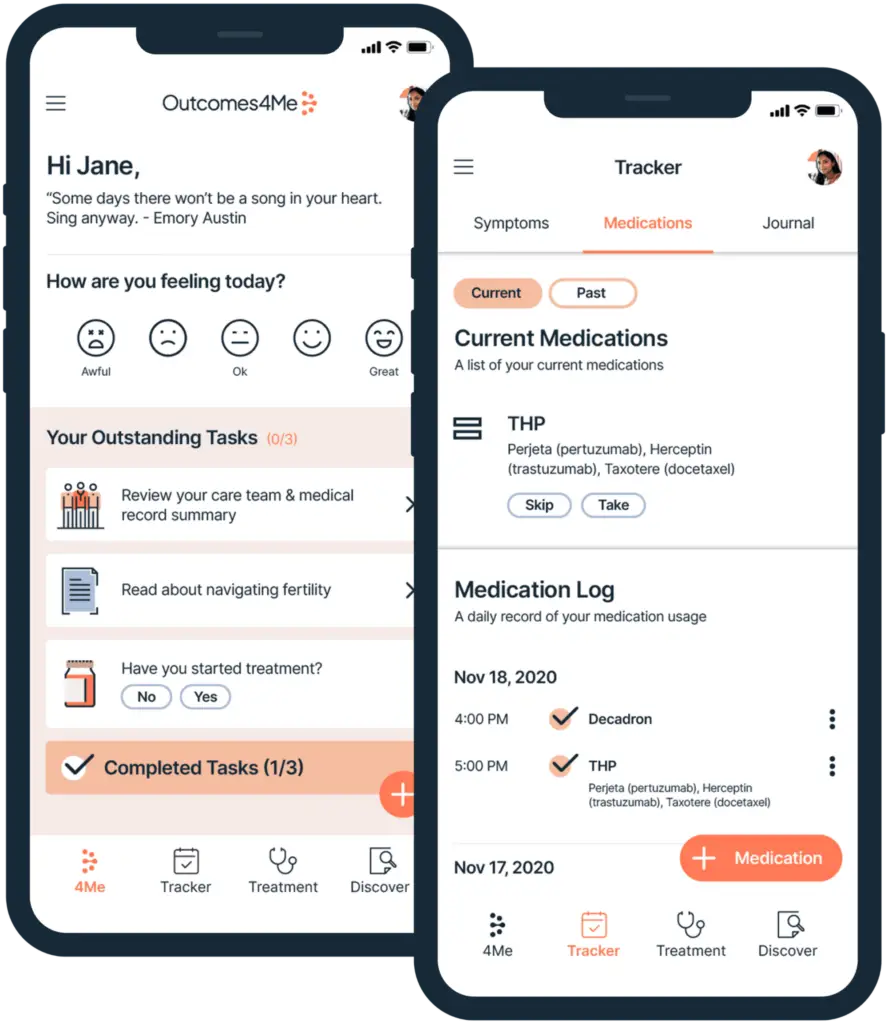A breast cancer diagnosis can quite understandably lead to feelings of anxiety for the patient and their loved ones. One study found that anxiety is the most prevalent psychological symptom perceived by cancer patients and another discovered that 77% of breast cancer patients recalled experiencing anxiety within two years of treatment. To better understand the symptoms associated with anxiety during breast cancer treatment and options for coping with these symptoms, keep reading.
What Causes Anxiety During Breast Cancer Treatment?
Most of us experience mild anxiety throughout our day to day lives. In some ways anxiety can aid us by alerting us to when we need to be more aware or careful (like before a job interview or when walking through a dark parking lot). The difference between this type of anxiety and the anxiety breast cancer patients feel is that when those specific events end, our anxiety tends to end too. There is no obvious end point for feeling anxious for those that have experienced a breast cancer diagnosis.
After a breast cancer diagnosis, some may feel anxious often. Their diagnosis, fear surrounding their longevity, and the personal and financial stress that can come with a breast cancer diagnosis can all contribute to feeling anxious. Certain treatments can also contribute to those feelings of anxiety. Both chemotherapy and hormonal therapy are known to increase anxiety symptoms. Even though you may suspect your anxiety is related to your medication, it’s important to not make any changes to your treatment plan without speaking to your doctor. Even a four week delay in treatment can lead to higher mortality rates for breast cancer patients.
The symptoms of anxiety can be quite disruptive. Some breast cancer patients experiencing anxiety may have trouble sleeping, get nightmares, or have chest pains.
What Are the Symptoms of Anxiety?
The following symptoms can be associated with feelings of anxiety during breast cancer:
- Shivering
- Tremors
- Feeling nervous, worried, or tense
- Having a continued sense of dread
- Feeling panicky or frightened
- Change in appetite
- Nausea
- Feeling sick
- Sleep disruption
- Muscle tension
- Tightness in the chest
- Racing heart rate
- Difficulty concentrating
- Diarrhea
- Irritability
It’s possible for these feelings of anxiety to escalate and to lead to panic attacks, but even without that level of escalation anxiety can harm the patient’s quality of life, as well as their mental and physical health.
How to Cope with Anxiety during breast cancer
Feelings of anxiety can affect all breast cancer patients differently. Those looking to ease symptoms of anxiety can consider taking some of the following steps.
Talk to your doctor
It’s always important to talk to your doctor about any medical concerns you have and persistent feelings of anxiety is a medical concern. Your doctor may be able to provide insight on whether or not your treatment is contributing to your feelings of anxiety and if an antidepressant is safe for you to take in conjunction with your treatment.
Find Healthy Distractions
If you can, try to fill your time with interests and activities you enjoy so you have less time to dwell on negative thoughts that can increase feelings of anxiety.
Embrace Relaxation Techniques
Mindfulness and meditation can help relieve stress, increase relaxation, and decrease feelings of anxiety. Not sure how to start embracing these practices? Try the Calm app which offers guided meditation sessions specifically designed to help with feelings of stress and anxiety.
Build a Support System
Having a strong support system made up of your care team, loved ones, a therapist, or a support group can provide you with safe spaces to talk about your feelings. BreastCancer.org has a free virtual community you can join if you’re looking for additional support.
Try One-On-One Counseling
Support groups can provide a unique level of support and understanding, but there may be times when one-on-one counseling can provide you with additional support. Private counseling, which you can pursue in person or online, can give you a confidential setting to share how you’re feeling around your breast cancer diagnosis, treatment, and future plans. You may be able to undergo Cognitive behavioral therapy (CBT) to learn how to change patterns of thinking and behavior that are contributing to your anxious feelings. Your doctor may be able to refer you to a therapist or psychologist who specializes in working with those undergoing cancer treatment.
Create Healthy Habits
A healthy diet, not drinking alcohol or smoking, and exercising regularly can all help improve symptoms associated with anxiety. You don’t need to make drastic changes to your lifestyle, but trying to add some healthier habits into your daily routine can make you feel less stressed and anxious. There are free video yoga classes hosted on YouTube designed specifically for breast cancer patients that make it easy to embrace a relaxing physical activity from the comfort of your own home.
Want to make changes in your diet? You can learn more about nutrition and breast cancer here.
Tracking symptoms such as anxiety with breast cancer can help you and your doctor understand their frequency and severity. You can track and manage your symptoms in the Outcomes4Me App, so that you can bring that data with you to your next doctor’s appointment. Download the app today!




